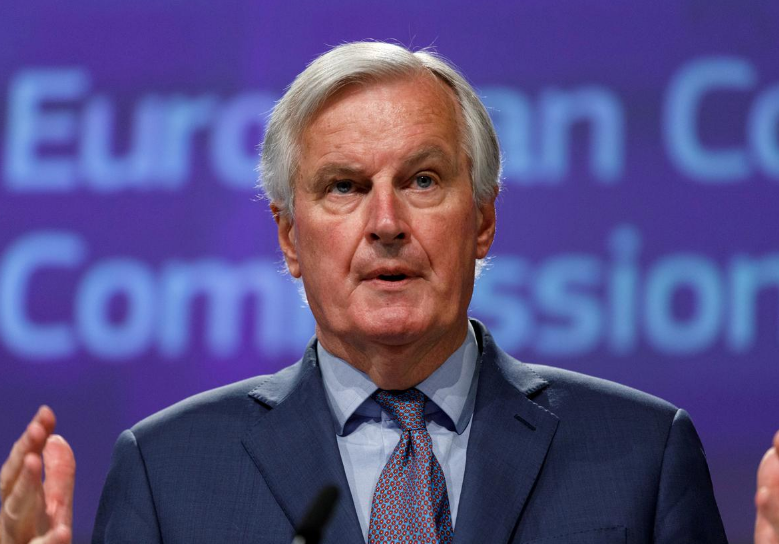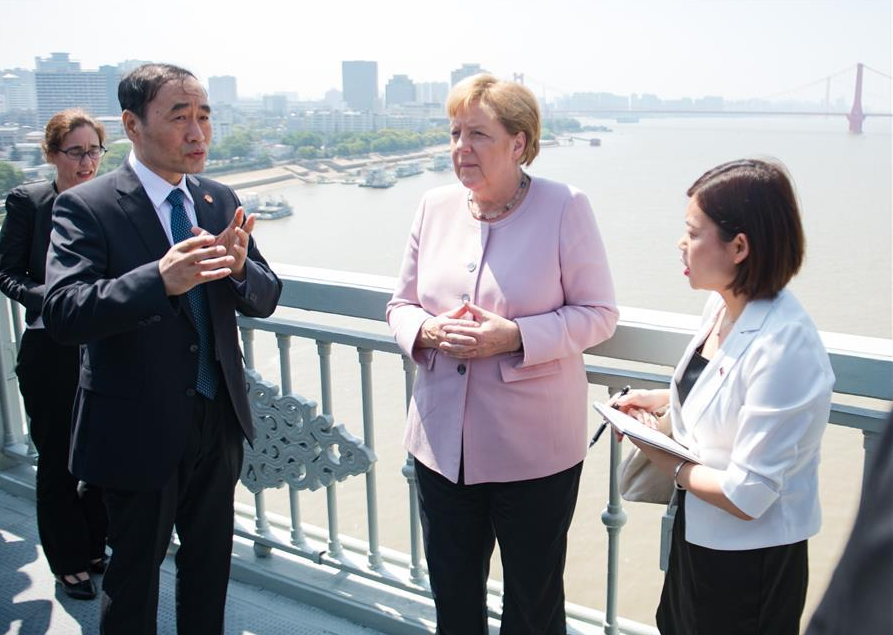Europe has to "move closer together in the crisis" and prove itself to be a force for solidarity, German Chancellor Angela Merkel said recently in a think tank, with the Union's chief Brexit negotiator echoing when asked about post-Brexit deal.
"I think that we have a joint responsibility in this very serious crisis, which affects so many families... with so many deaths, so many people sick, so many people unemployed... to do everything we can to reach an agreement and I very much hope that we will do so," chief EU negotiator Michel Barnier told The Sunday Times on Sunday.
Barnier suggested that London and Brussels could potentially see worsening economic situation if breaking off their nearly 50-year partnership without future plans, "those will be added to the already very serious consequences of the coronavirus crisis."

EU's Brexit negotiator Michel Barnier gestures during a news conference after Brexit negotiations, in Brussels, Belgium, April 24, 2020. /Reuters
EU's Brexit negotiator Michel Barnier gestures during a news conference after Brexit negotiations, in Brussels, Belgium, April 24, 2020. /Reuters
Merkel, on another occasion, spoke on the current virus situation in Europe in general. She called on the European Union (EU) to assume more global responsibility in the coronavirus crisis, while "moving closer together."
In a speech outlining Germany's policy during its rotating EU presidency starting in July, Merkel said that the EU should act as an anchor of stability, and proactively support rule-based, multilateral cooperation, at a time when the deadly virus has posed "a stress test for European foreign and security policy."
According to the German leader, the 500-billion-euro (545 billion U.S. dollars) recovery fund through the Franco-German initiative is set to intensify Europe's solidarity. Europe's common investment in a vaccine, too, she added.
Relations with China and the U.S.
Merkel said relations with China will be a focus of EU's foreign policy during the German presidency, with a number of subjects on the agenda, including agreements on investment, climate change, global health and the improvement of information transparency during global pandemics.

German Chancellor Angela Merkel visits Wuhan Yangtze River Bridge in Wuhan, capital city of central China's Hubei Province, September 7, 2019. /Xinhua
German Chancellor Angela Merkel visits Wuhan Yangtze River Bridge in Wuhan, capital city of central China's Hubei Province, September 7, 2019. /Xinhua
"All the subjects in the relations between the EU and China are challenging and ambitious enough. In addition, China is not an ordinary partner," said Merkel, noting that the differences between China and the EU should not stand in the way of exchanges, dialogue and cooperation.
When it comes to the United States, Merkel said it is Europe's most important partner, despite the fact that cooperation with the United States is currently more difficult than what Europe would desire, on issues regarding climate change, trade policy and the role of international organizations during the pandemic.
"However, I am convinced that transatlantic relations, cooperation and alliance with the U.S. and in NATO (the North Atlantic Treaty Organization) will constitute a central pillar of our foreign and security policy, and will remain so."
"Europe is part of the political West," said Merkel, adding that if Europe wants to assert itself in the world, it will have to take its fate in its own hands to a greater extent, while still "acting as a reliable partner within the Western community of values and shared interests."
(With input from Xinhua, AFP)